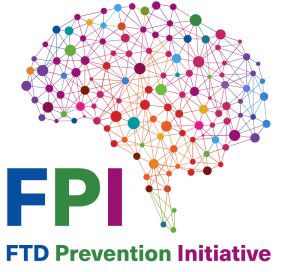The FTD Prevention Initiative (FPI) brings together genetic FTD cohorts from across Europe, North America, South America, Australasia and Asia.
It is is led by Professor Jonathan Rohrer at UCL in the UK, and Professor Adam Boxer at UCSF in the US.
Our overall aim is to promote clinical trials of new therapies to prevent FTD.
Key goals:
- Create uniform standards for conduct of clinical trials in familial FTD syndromes.
- Create an international database of familial FTD research participants who might be eligible for clinical trials.
- Promote responsible data sharing within the context of observational studies and trials in familial FTD.
Members of the FPI include:
- Genetic FTD Initiative (GENFI) in Europe and Canada
- ALLFTD study in US and Canada
- Dominantly Inherited Non-Alzheimer Dementias (DINAD) study in Australia
- New Zealand Genetic FTD study (FTDGenZ)
- Research Dementia Latin America (ReDLat)
- South East Asia FTD Consortium
- Chinese fFTD Network
- India FTD Network
- LEAF-FTD in Korea
- FTLD-J in Japan
We also link in with patient advocacy groups and foundations involved in FTD research.
The FPI involves over 300 researchers and 3000 participants across the world.
The FPI team consists of:
- An executive committee consisting of Jonathan Rohrer (GENFI), Adam Boxer, Brad Boeve, Howie Rosen (ALLFTD), Agustin Ibanez (ReDLat), Rebekah Ahmed (DINAD), Brigid Ryan (FTDGeNZ), Qin Chen (Chinese fFTD Network), Suvarna Alladi (India FTD Network), EJ Kim (LEAF-FTD), Manabu Ikeda (FTLD-J) and Adeline Su Ng Lyn (South East Asia FTD Consortium).
- An investigator group consisting of primary investigators and co-investigators at each site within each consortium.
- Representatives of patient advocacy groups and foundations involved in FTD research.
- Co-ordinators: Lucy Russell and Hilary Heuer
We are focused on improving trial design in preventative trials through using large-scale data from the cohorts.
We have so far completed the following projects:
- Understanding the variability in age at onset and disease duration in the different genetic forms of FTD – see Publications
- Investigation of plasma NfL as a predictor of disease progression in genetic FTD – see Publications
- Modelling disease progression using data from the GENFI and ALLFTD cohorts – see Publications
Ongoing projects include:
- Predicting conversion to symptomatic FTD – this study aims to investigate what factors predict someone becoming symptomatic when they are in the presymptomatic period.
- Language processing in FTD – we are aiming to use novel ways to analyze speech taken from a short recording when people come to a research visit.
- Digital biomarkers – this study will compare different cognitive apps developed in the different studies.
- Proteomics – we will compare proteomics results from across the cohorts.
- Family relatedness – we are trying to understand how related families within the cohorts are across the world.
In order to help with this work we have developed a Minimum Data Set (MDS) across the studies with over 100 harmonised variables including clinical, cognitive, imaging and fluid biomarkers.
This MDS will form the basis of the FPI Database that is currently in development.
The voice of the participant and their family is central to our work. We continually work with our participants from across the familial FTD consortia to better understand what our focus should be and how we can improve clinical trial design.
- If you are interested in understanding more about the FPI or would like to be a participant in one of the familial FTD cohort studies please email Lucy Russell at l.russell@ucl.ac.uk.
- More information about FTD can be found through the Association for FTD.
- More information about current studies can be found the FTD Disorders Registry.
Publications:
The FPI investigators have now published joint papers combining work on genetic FTD cohorts.
- Moore KM, Nicholas J, Grossman M et al. Age at symptom onset and death and disease duration in genetic frontotemporal dementia: an international retrospective cohort study. Lancet Neurol. 2020;19(2):145-156.
- Plasma Neurofilament Light for Prediction of Disease Progression in Familial Frontotemporal Lobar Degeneration. Neurology. 2021;96(18):e2296-e2312.
- Staffaroni AM, Quintana M, Wendelberger B et al. Temporal order of clinical and biomarker changes in familial frontotemporal dementia. Nat Med. 2022;28(10):2194-2206.
For coverage of our research in Alzforum see:

